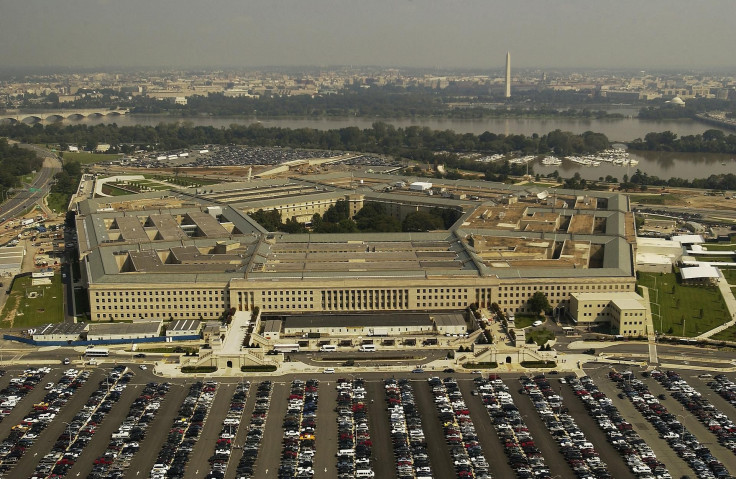Pentagon Releases More UFO Sighting Reports; Lawmakers Want In-Depth Investigation
KEY POINTS
- Lawmakers have been briefed on the enhanced efforts to investigate reports of unidentified aerial phenomena (UAP)
- Some want more analysts and surveillance systems dedicated to determining the origins of UAPs
- Expanding the investigation of UAPs will require dedicating more resources and personnel, according to experts
National security agencies are not taking seriously reports of unidentified aerial phenomena (UAP) violating protected airspace, according to lawmakers who want expanded investigations on the mysterious flyers.
Members of both the Senate Intelligence and Armed Services committees have received classified progress reports in recent weeks on the enhanced efforts to investigate reports of UAPs, the now-widely accepted designation for unidentified flying objects (UFO), according to Politico.
These congressional briefings come four months after the National Defense Authorization Act (NDAA) was passed.
The bill required the Pentagon to create the Anomaly Surveillance and Resolution Office, an agency with the authority to pursue "any resource, capability, asset or process" to investigate UAPs, according to the report.
Additionally, the NDAA, which was signed by President Joe Biden, also required an annual report and semiannual briefings for Congress that included descriptions of all UAP incidents such as those "associated with military nuclear assets, including strategic nuclear weapons and nuclear-powered ships and submarines."
Deputy Defense Secretary Kathleen Hicks directed the creation of an Airborne Object Identification and Management Synchronization Group to oversee the effort and establish the permanent UAP office required by Congress in response to the lawmaking body's direction.
One of the group's tasks is to standardize UAP incident reporting across the military as well as to collect and analyze more intelligence.
However, some members of Congress reportedly want more analysts and surveillance systems dedicated to determining the origins of UAPs, not just reports.
Among these lawmakers is Sen. Kirsten Gillibrand of New York, a member of both the Senate Intelligence and Armed Services committees.
"Senator Gillibrand believes that the DoD (Department of Defense) needs to take this issue much more seriously and get in motion," an aide for the lawmaker was quoted as saying.
"They have had ample time to implement these important provisions, and they need to show us that they are prepared to address this issue in the long-term," added the aide, who requested anonymity.
Florida Sen. Marco Rubio, another member of the intelligence panel, also believes the Pentagon is not aggressively carrying out Congress' direction.
"Rubio is definitely frustrated. They are not moving fast enough, not doing enough, not sharing enough," said one of the senator's aides, who was not authorized to speak publicly.
Rep. Tim Burchett, of Tennessee, for his part, expressed his distrust toward the DoD and claimed the department was hiding information from Congress.
"I don't trust the Department of Defense to get this right since leadership there has always been part of a cover-up. It is clear from the public evidence that we don’t have full control of our airspace," the lawmaker said.
Expanding the investigation of UAPs will require dedicating more resources and personnel to the task, according to military and intelligence experts.
"Real progress" is being made to compel agencies to take a more proactive approach and also to be more transparent about what they might know about UAP sightings and technologies, five current and former military intelligence officials and contractor personnel with knowledge of the deliberations but were not authorized to speak publicly told Politico.

© Copyright IBTimes 2025. All rights reserved.





















